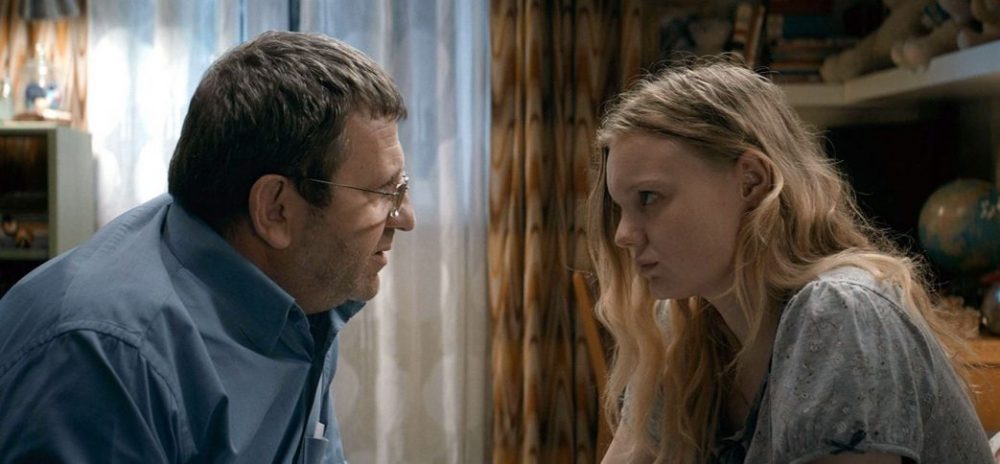| Worth seeing: | as a mature, intricately woven father-daughter drama that examines the low-level corruption under the skin of Romania's upper middle classes |

| Director: | Cristian Mungiu |
| Featuring: | Adrian Titieni, Maria-Victoria Dragus, Lia Bugnar, Malina Manovici, Rares Andrici, Vlad Ivanov |
| Length: | 128 minutes |
| Certificate: | 15 |
| Country: | Romania |
| Released: | 31st March 2017 |
WHAT’S IT ABOUT?
Romeo (Adrian Titieni) is a highly respected hospital consultant in the Romanian city of Cluj. His daughter Eliza (Maria-Victoria Dragus) is preparing to take her High School exams, which are all that stand between her and a scholarship to study at university in the UK.
A day before the first exam, Eliza is the victim of a serious assault and not in the best frame of mind to give it her best. But when she appeals for leniency, she’s turned down. She has to sit the exams just like anyone else.
Desperate for his daughter to escape the drab misery and low-level corruption of her home country, Romeo starts looking for ways around the system. A local politician, who might be able to arrange for her exam papers to be marked more favourably, is himself awaiting a kidney transplant. Perhaps, if Romeo can move him up the waiting list, he could do something for Eliza in return.
His daughter was the victim of an assault. Why should this deny her the future she so richly deserves? Much as it pains him to do so, Romeo can’t see any other way around the situation. His daughter must come first. But wouldn’t anyone do the same?
WHAT’S IT LIKE?
As a Cannes favourite – his earlier film 4 Months, 3 Weeks and 2 Days won him the Palme d’Or and he took home the Best Screenplay award for Beyond the Hills, five years later – it’s no surprise that the director Cristian Mungiu launched his latest film on the French Riviera too.
And again, he’s delivered a highly accomplished, mature and though-provoking drama, centred on characters who will resonate with audiences. And again, he impressed the Cannes jury, sharing the Best Director prize with Olivier Assayas, for Personal Shopper – but here at What’s Worth Seeing, we have no doubt about which of the two deserved it more.
Graduation works on a number of levels – particularly as a father-daughter relationship drama and a gentle expose of the low-level corruption that pervades Romania’s upper-middle classes, but it also touches on other uncomfortable issues, such as marital infidelity.
It’s an intense film, necessarily slow and perhaps a little longer than it needed to be, but it’s an intricately woven and well-planned narrative that provides a fascinating glimpse into a controversial society.
The film is successful in keeping the audience interested, despite having no villain, other than the system, bad luck and an attacker, who’s never seen on screen and whose presence in the story is almost entirely absent.
It’s also, perhaps perverse, but nonetheless interesting, that the protagonist, who you will genuinely find yourself rooting for, is the one who – arguably for the right reasons – is most guilty of corruption.
Other directors might have turned Graduation into a crime thriller about how the authorities traced Eliza’s attacker, but Mungiu makes it more about how the system – and those wrapped up in it – respond to an unexpected attack that threatens a young woman’s future every bit as much as it threatens her present.
